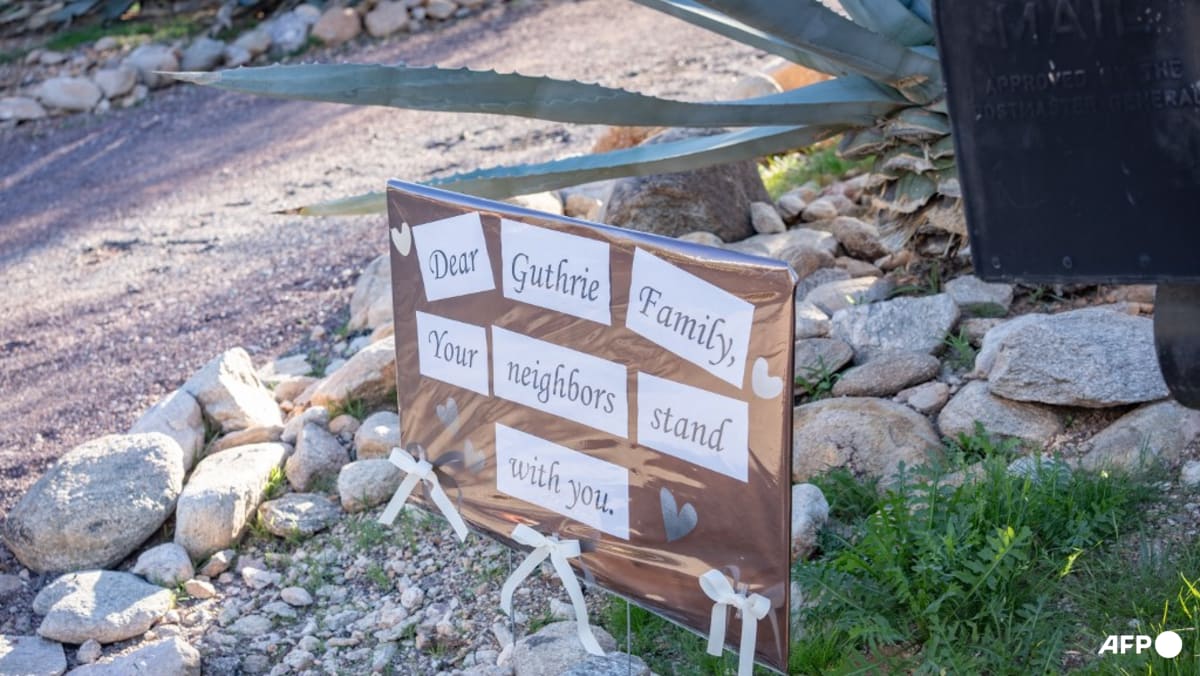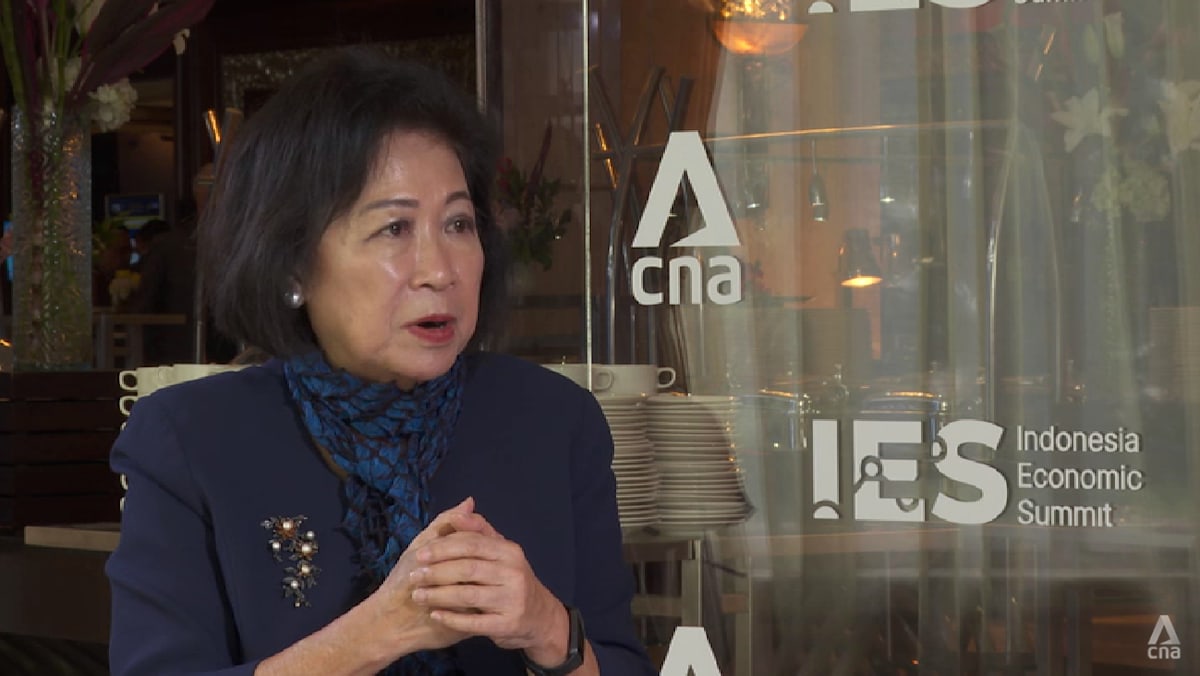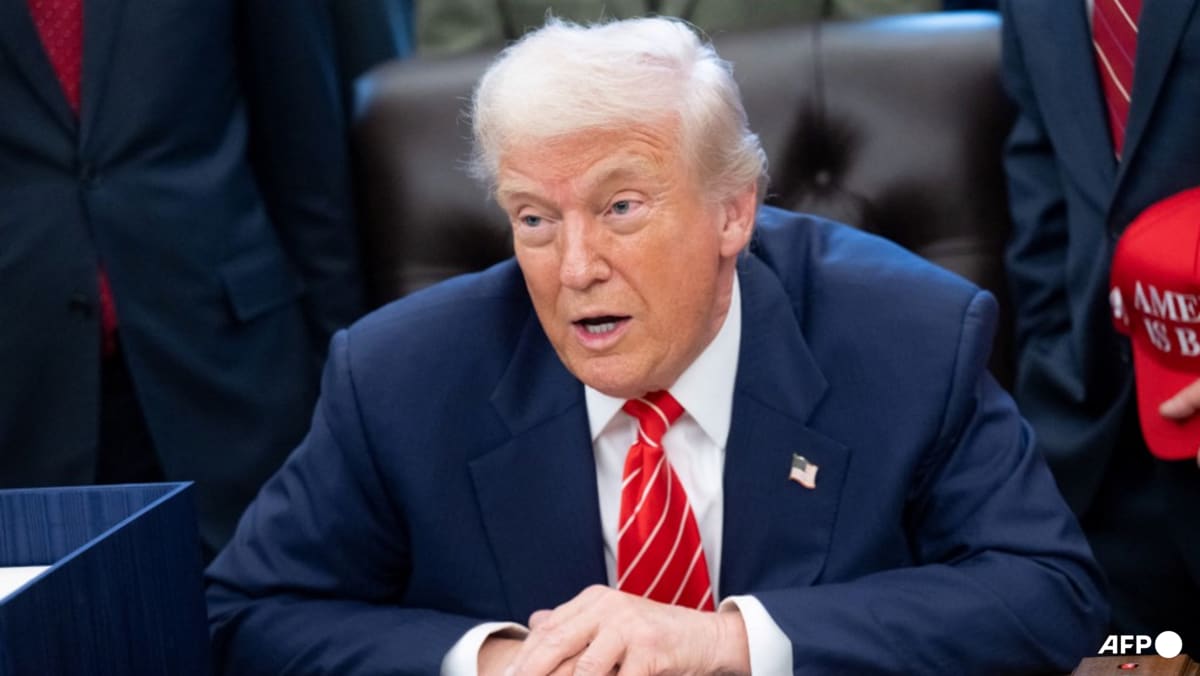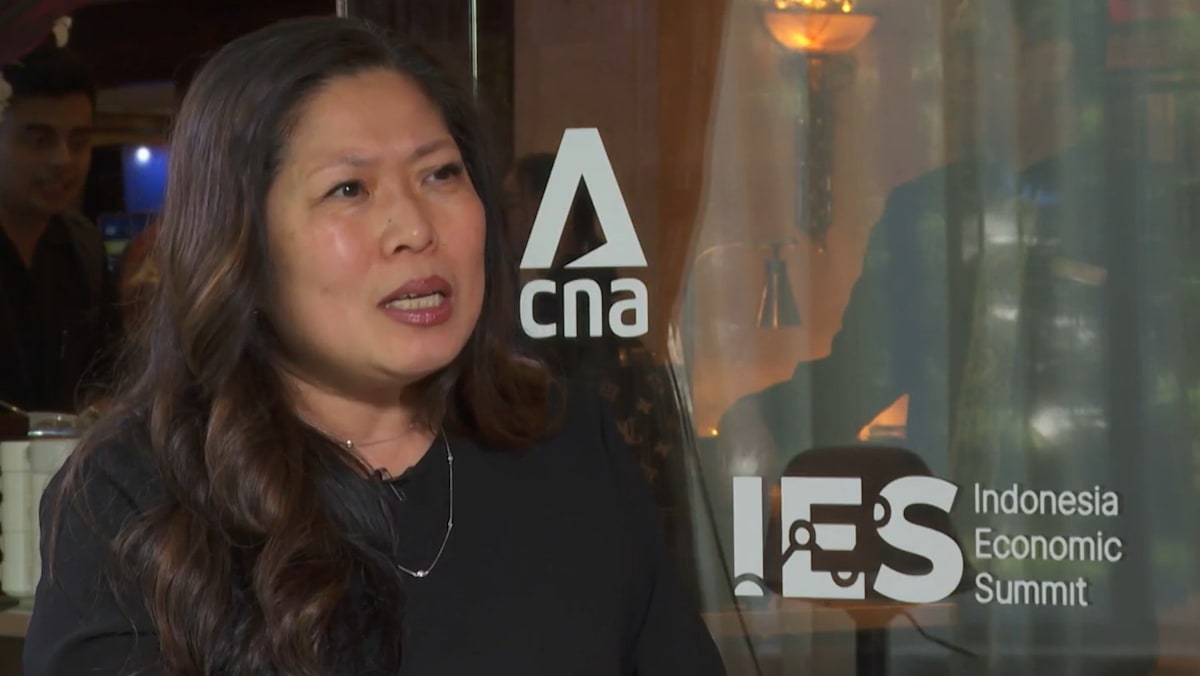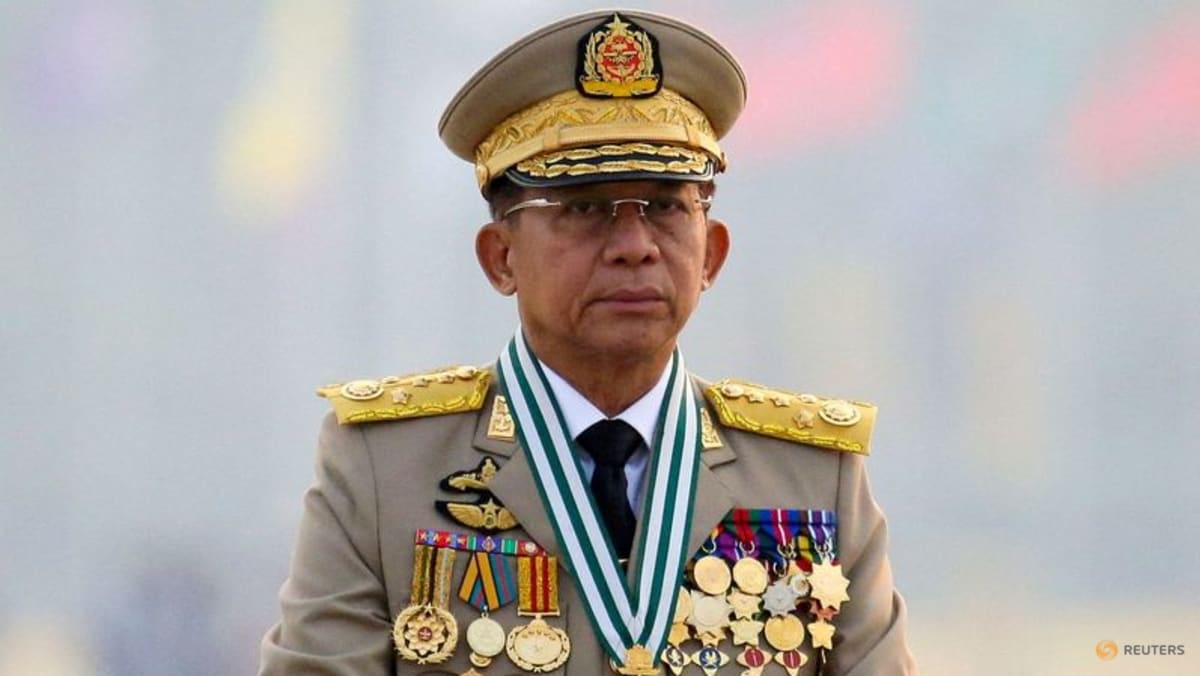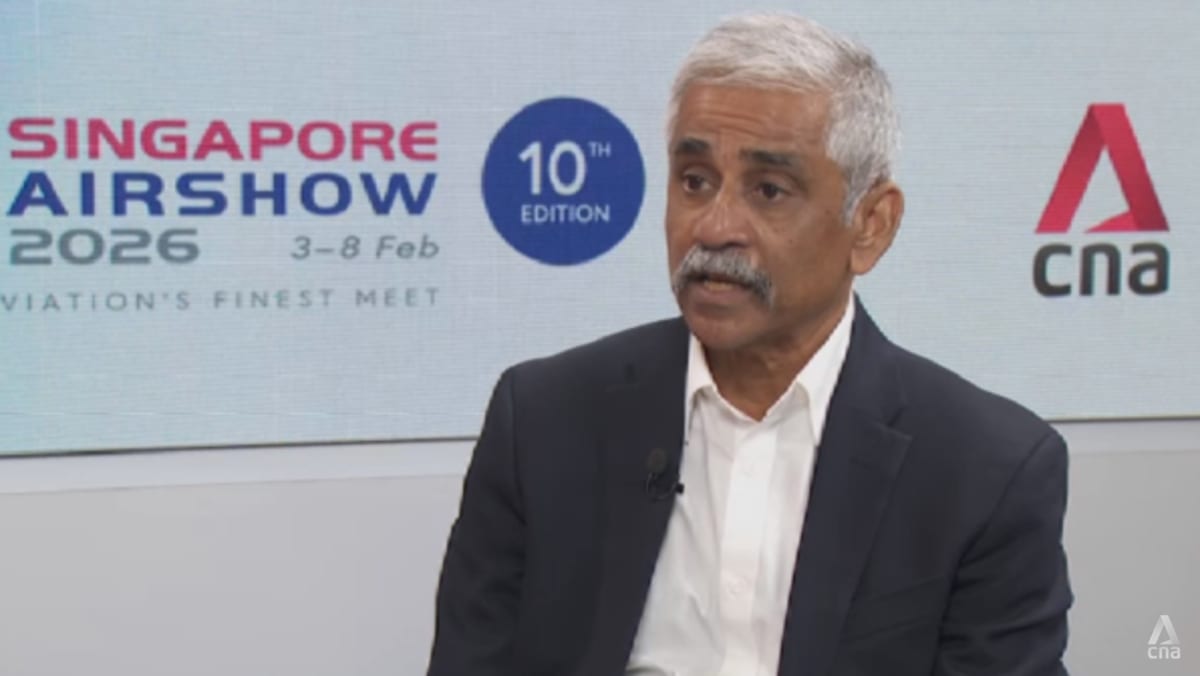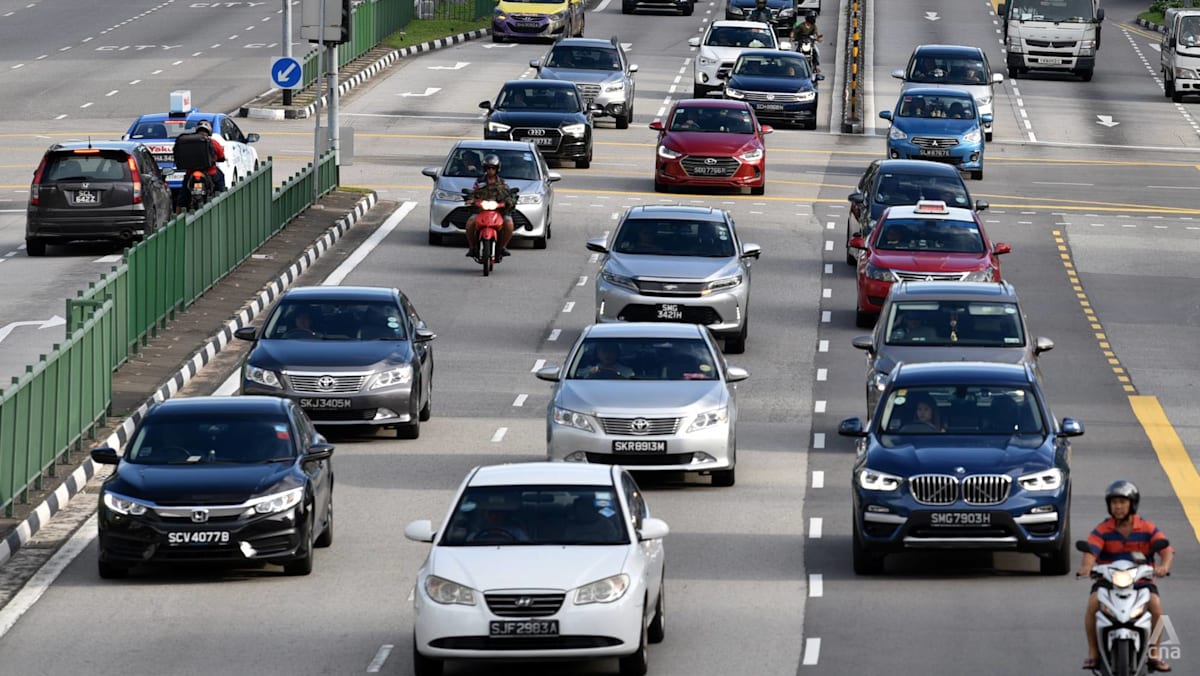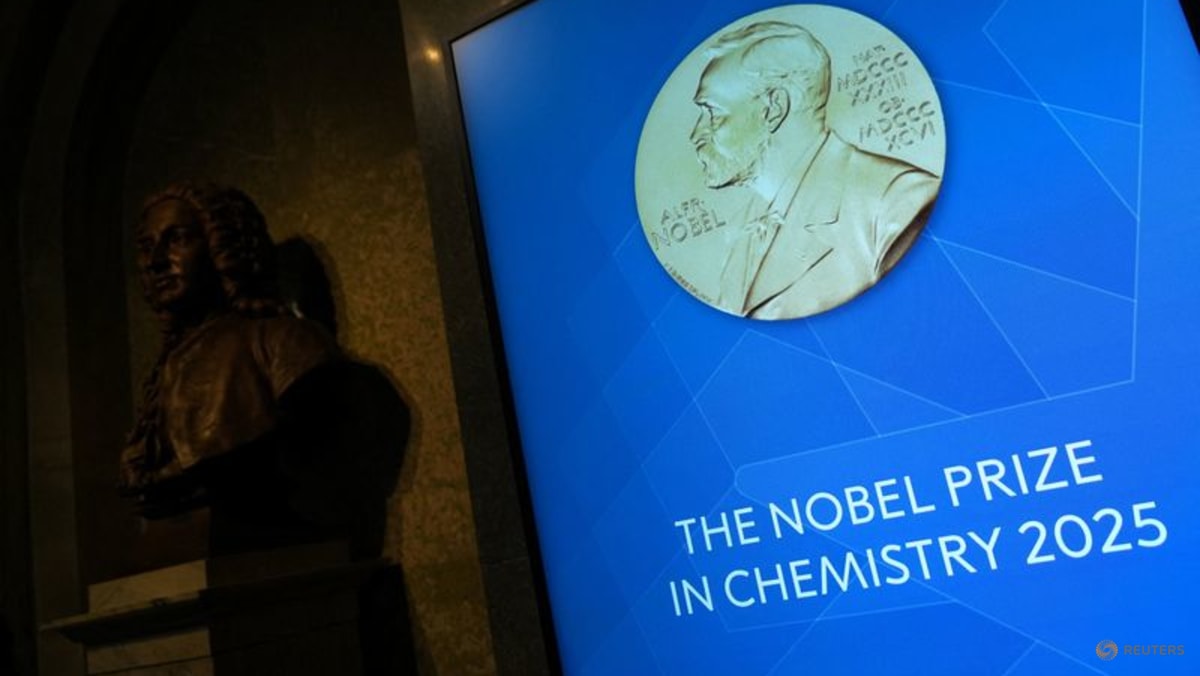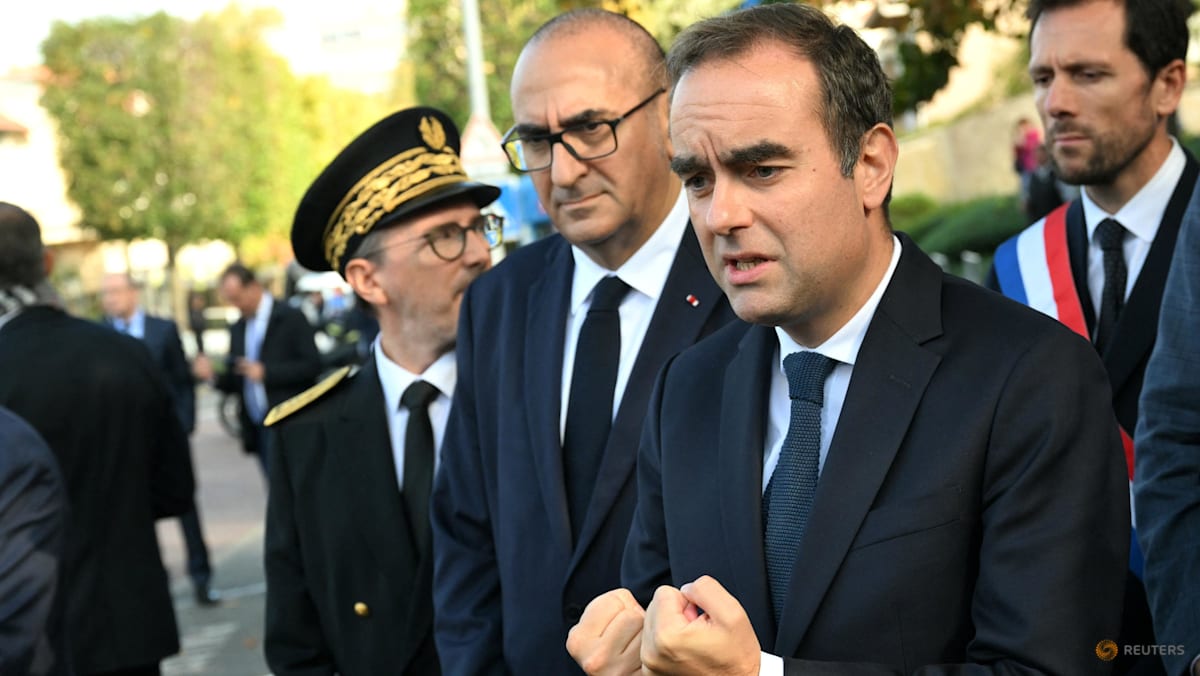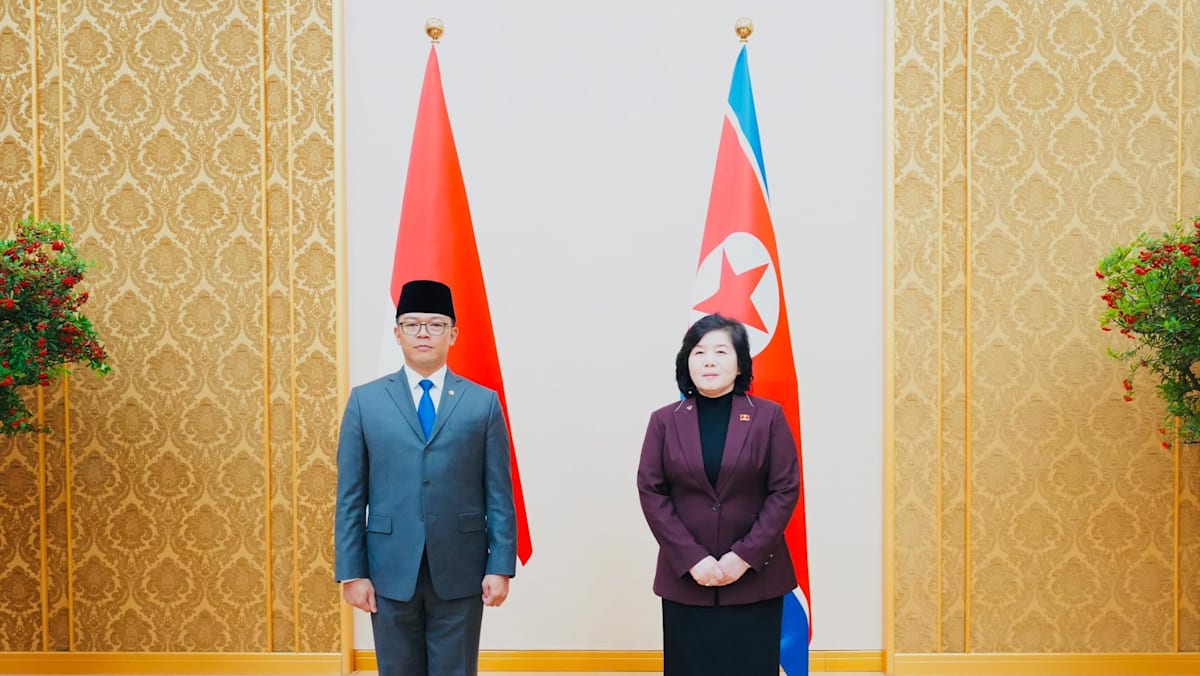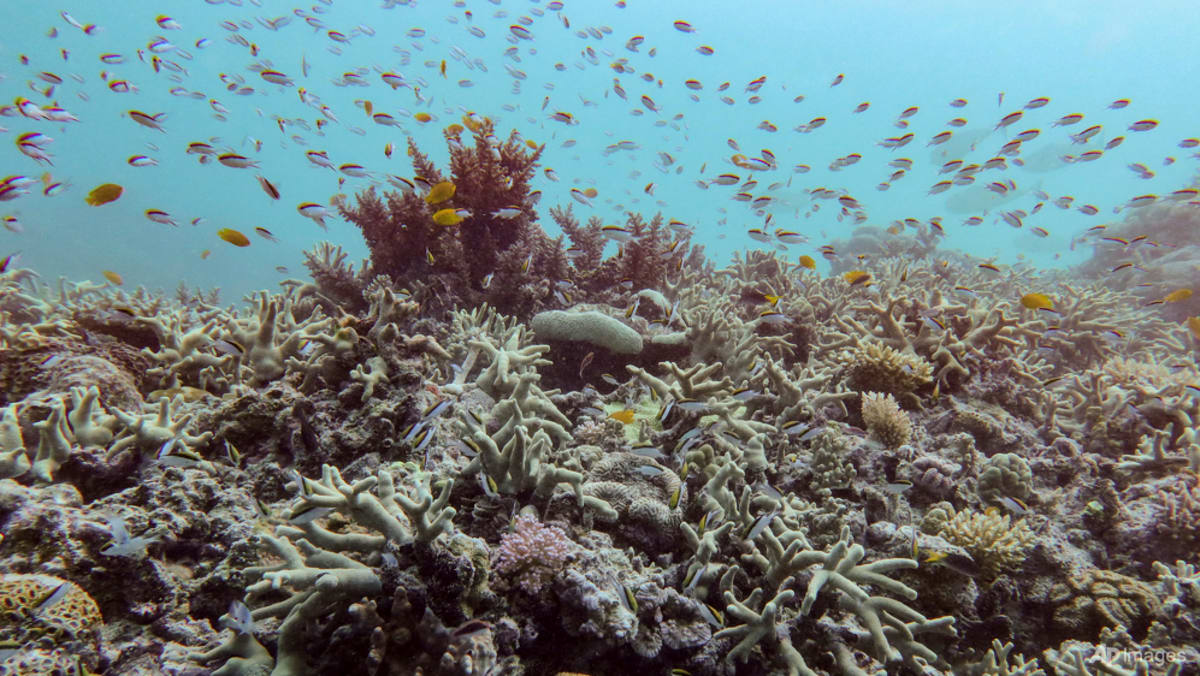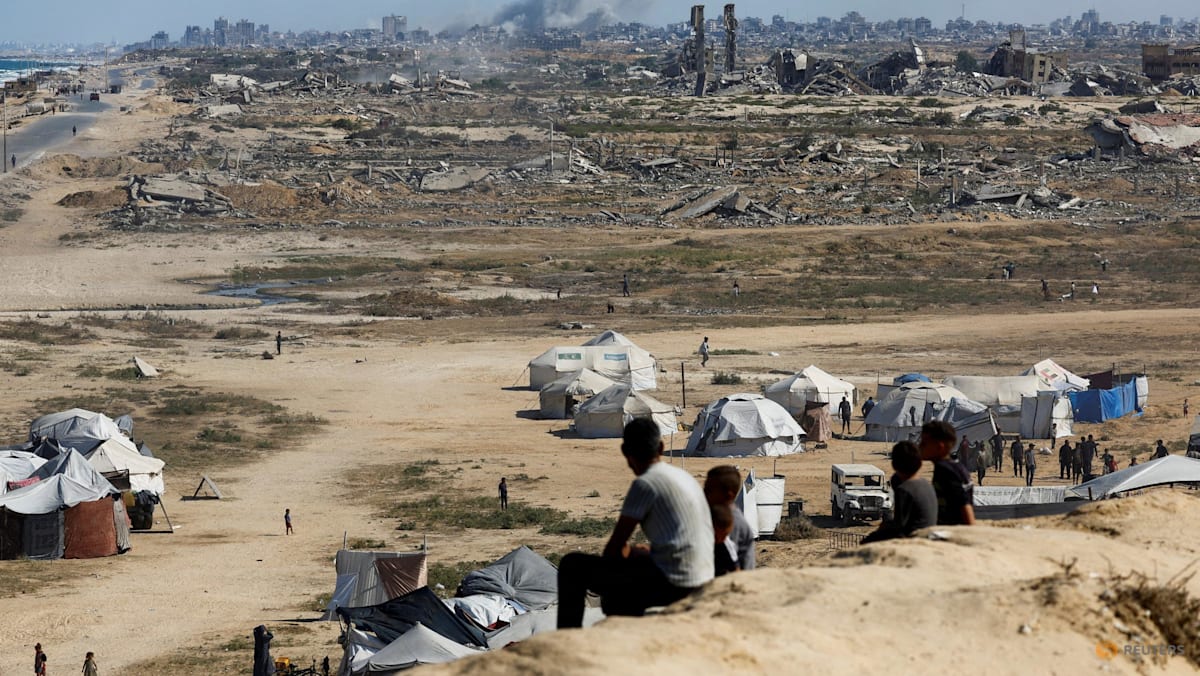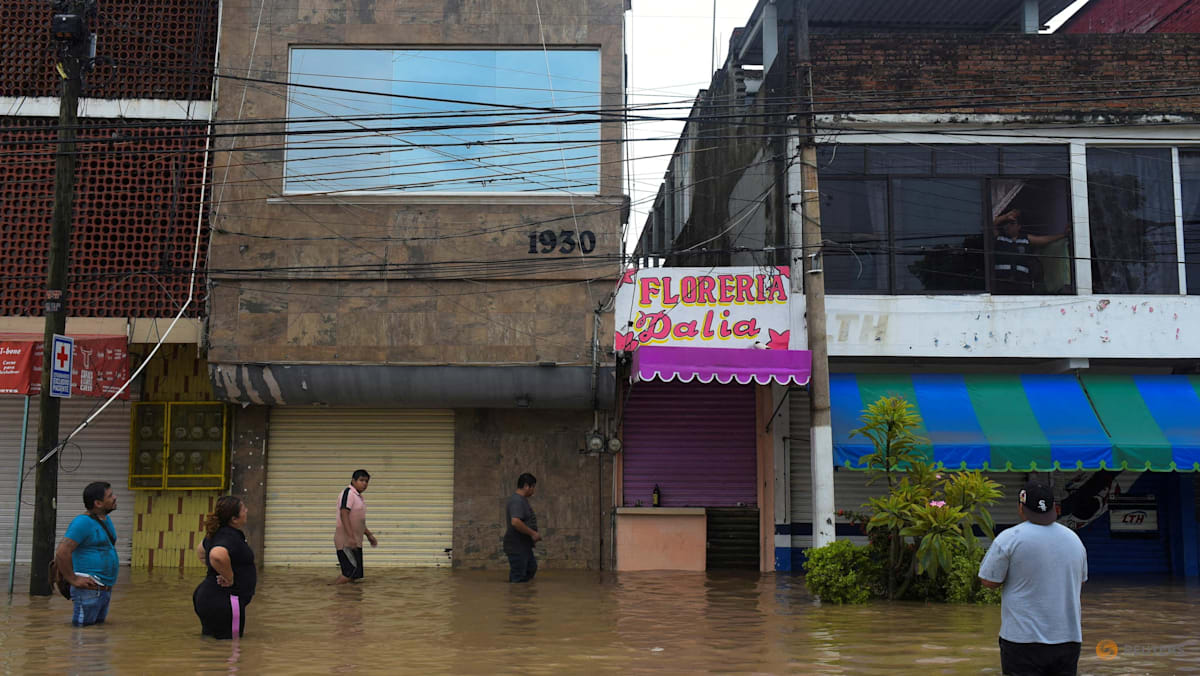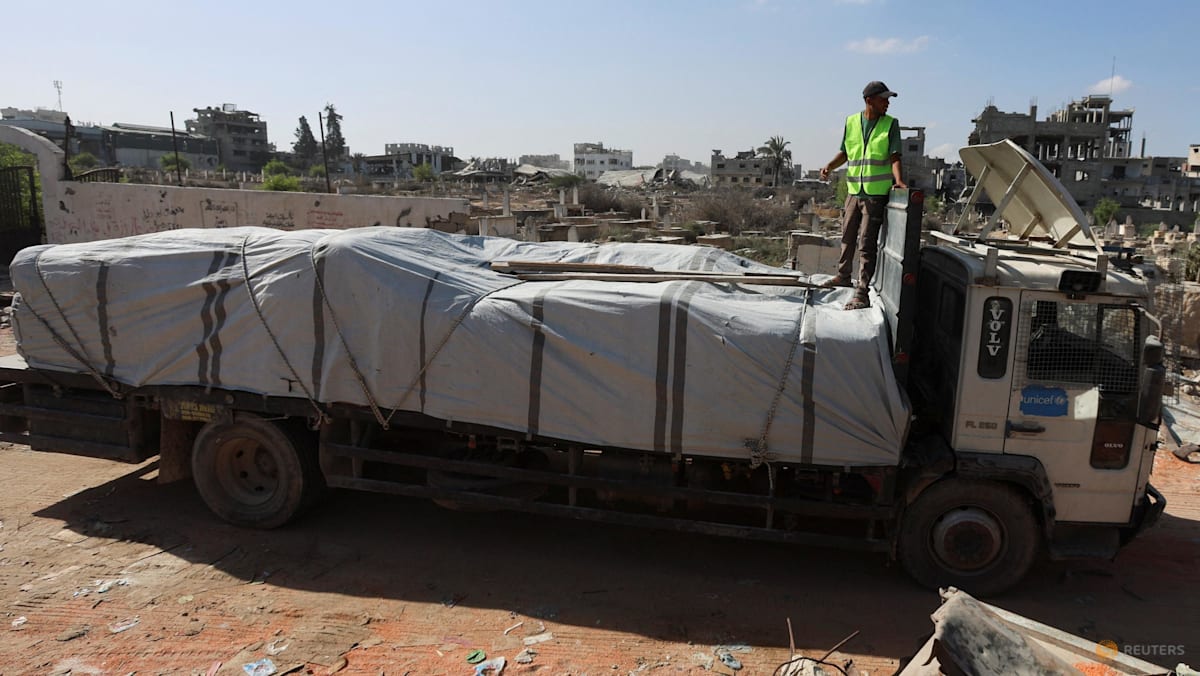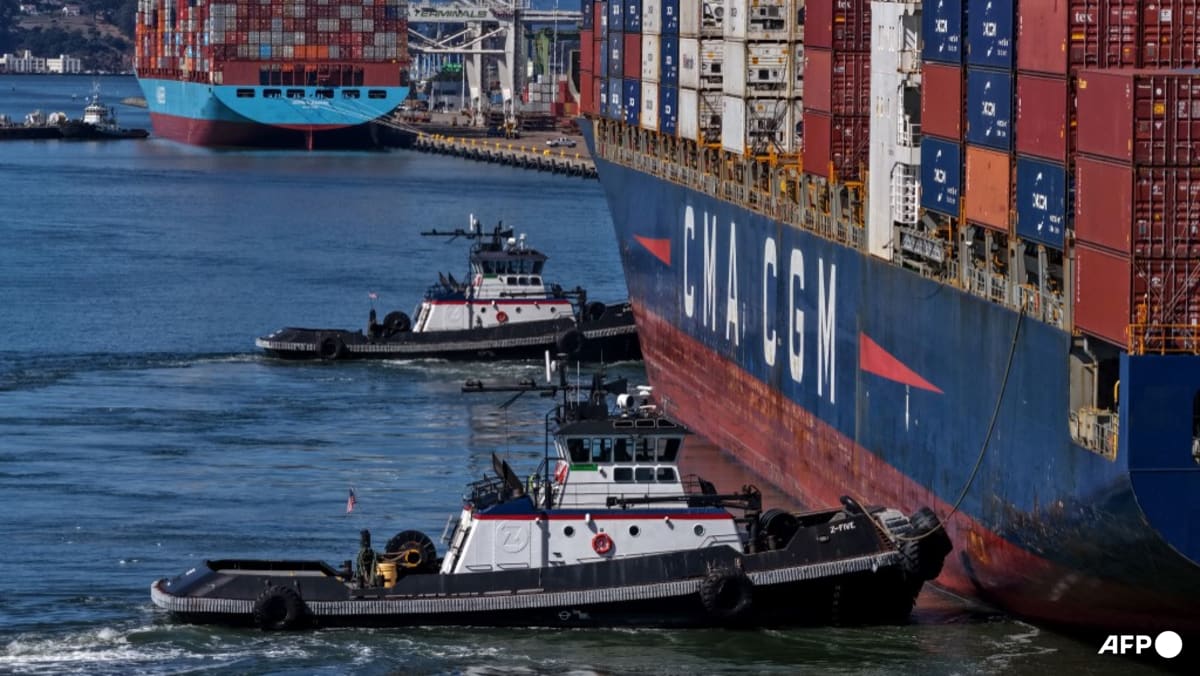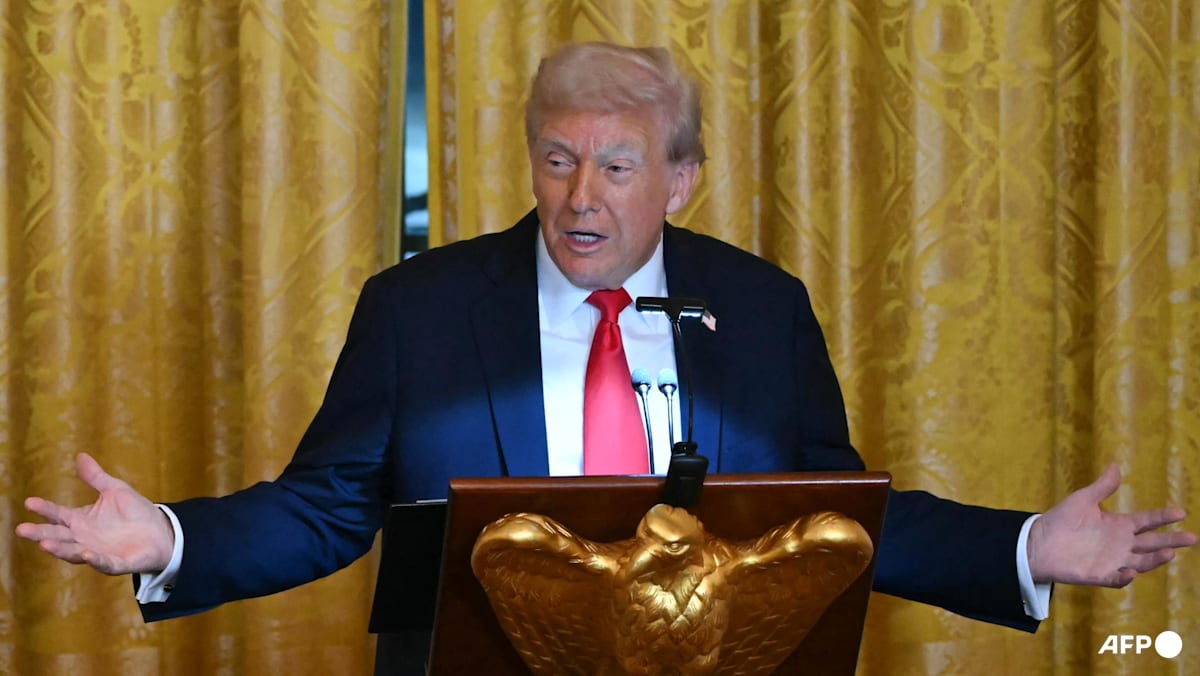SINGAPORE: In one of the lighter moments of the ASEAN Summit in Kuala Lumpur, a clearly amused Thai Prime Minister Anutin Charnvirakul looked up from the “peace deal” he was about to sign and swapped the Cambodia nameplate in front of him for his country’s.
Moments earlier, he and Cambodian Prime Minister Hun Manet switched seats while signing the joint declaration over their countries’ border dispute. It was perhaps a fitting reminder that both countries will need to consider each other’s perspective if the so-called “Kuala Lumpur Peace Accord” is to endure.
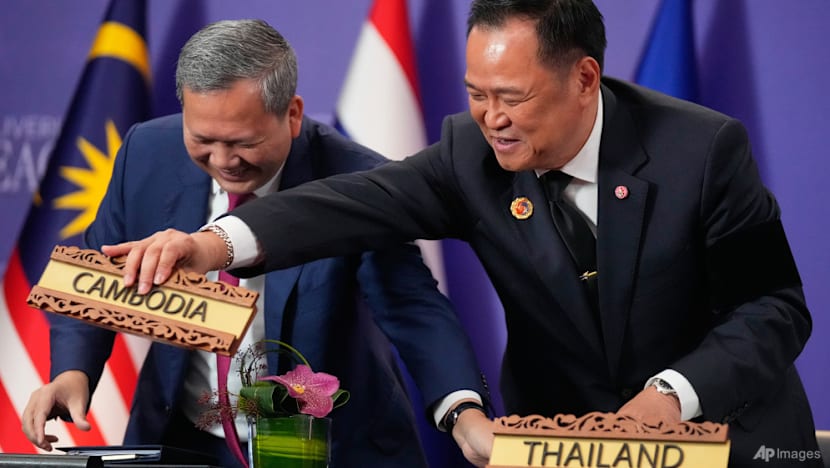 Cambodian Prime Minister Hun Manet, left and Thailand's Prime Minister Anutin Charnvirakul react as they switch country signs during a signing ceremony on the sidelines of the ASEAN Summit in Kuala Lumpur, Malaysia, Oct 26, 2025. (AP Photo/Mark Schiefelbein)
Cambodian Prime Minister Hun Manet, left and Thailand's Prime Minister Anutin Charnvirakul react as they switch country signs during a signing ceremony on the sidelines of the ASEAN Summit in Kuala Lumpur, Malaysia, Oct 26, 2025. (AP Photo/Mark Schiefelbein)
Signed on Sunday (Oct 26) at the 47th Association of Southeast Asian Nations’ Summit, under the watchful eye of United States President Donald Trump and Malaysian Prime Minister Anwar Ibrahim, the deal commits Thailand and Cambodia to cease all hostilities at their disputed shared border.
Both countries agreed to specific steps to de-escalate border tensions. These include removing heavy and destructive weapons from the border, establishing observer teams, refraining from disseminating or promoting misinformation, and implementing de-mining in border areas. Thailand has also pledged to release 18 Cambodian soldiers who have been detained since July.
But will the agreement stick, when at the heart lies a longstanding territorial dispute?
THE NEED FOR GOOD FAITH
The past few days suggest that Cambodia is eager to demonstrate its desire to adhere to the terms of the agreement.
Hours after the signing ceremony, Cambodia began withdrawing heavy weaponry from the border. The pullback was witnessed by the ASEAN Observer Team (deployed to oversee compliance). All this was broadcast live on Cambodian media.
Thailand has also begun withdrawing heavy weaponry from the border, with its defence minister revealing that the plan was to withdraw in three phases over at least six weeks. Mr Anutin on Tuesday warned that Cambodia’s withdrawal of weaponry must not be symbolic but concrete.
He also said that he wanted Cambodia’s full cooperation to remove landmines – a major issue of contention. Thailand has repeatedly accused Cambodia of laying new mines on the border in violation of their earlier ceasefire agreement signed in late July. Since then, several landmines have exploded and resulted in Thai casualties.
A Thai government spokesperson also specified that Cambodia’s BM-21 multiple rocket launchers – which Thailand alleges were used in late July to target Thai civilian locations – should be withdrawn.
All these indicate that Thailand is prepared to de-escalate. But two major outcomes – release of detained Cambodian soldiers and the reopening of borders which have been shut since late June – will largely depend on its perception of how satisfactorily Cambodia fulfils its end of the bargain.
WILL THE DEAL HOLD?
Still, economic imperatives will likely persuade both governments to uphold the deal.
Both countries at the summit signed trade-related agreements intended to address the US administration’s grievances and mitigate the risk of fresh, elevated tariffs. The US is both countries’ top export market. In particular, the Thai economy is facing significant challenges and Thai politicians of all stripes are eager to usher in signs of economic revival to boost their political standing.
Nevertheless, several factors could risk re-escalating the conflict.
The first is the next Thai general election, which is expected by March or April 2026. Mr Anutin has pledged to dissolve parliament by January 2026.
Although he and his Bhumjaithai party stand a good chance of returning to power, Mr Anutin will need to resist the temptation to exploit the border dispute on nationalistic grounds to strengthen his party’s electoral prospects. Additionally, it remains uncertain whether he can or is willing to rein in the military, which has been making public statements about forcibly taking over disputed areas.
SCAM CENTRES ARE A SORE POINT
Another issue is scam centre operations in Cambodia and other Southeast Asian countries, which have reportedly defrauded Americans of more than US$10 billion and have also prompted safety concerns about travelling to Thailand (where many victims have been trafficked across the border into Cambodia). At the ASEAN Summit, Thailand and Cambodia agreed with the US in their respective discussions to expand cooperation on combating scam centres.
However, it is doubtful whether Thailand and Cambodia have the political will to address the issue transparently.
Allegations have emerged in recent months linking major political and government officials in both countries to organised crime groups running the scam centres in Cambodia. More revelations are likely in the coming months, driven by investigative reporting and US legislative efforts to sanction individuals and business entities linked to scam networks.
Both countries might be tempted to try friendly fire as a form of misdirection. This could manifest as accusations that the other side is refusing to take serious action against prominent politicians and businesspeople allegedly connected to scam networks.
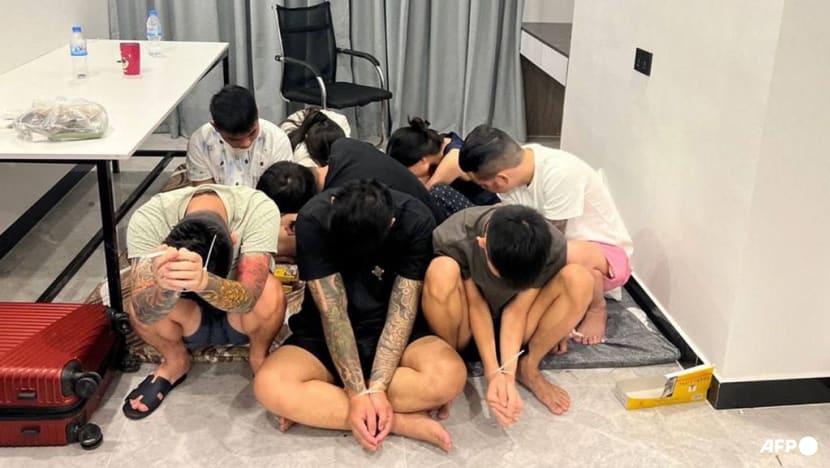 This pool photo taken on Jul 14, 2025 and released on Jul 16 by Agence Kampuchea Presse shows suspects with their hands zip-tied after being detained during a raid on a scam centre in Phnom Penh. (Photo: AFP)
This pool photo taken on Jul 14, 2025 and released on Jul 16 by Agence Kampuchea Presse shows suspects with their hands zip-tied after being detained during a raid on a scam centre in Phnom Penh. (Photo: AFP)
Both sides will have material to work with. Just two days before the signing of the joint declaration, Mr Anutin revoked the Thai citizenship of Cambodian businessman Ly Yong Phat, who had come under media scrutiny for alleged links to cyber-scam operations and human trafficking networks. The tycoon and his businesses were sanctioned by the US Office of Foreign Assets Control in September 2024 for their role in serious human rights abuses involving forced labour in online scam centres.
At the same time, Cambodia would have choice targets as well. Mr Anutin’s revocation order came on the heels of the resignation of Thai Deputy Finance Minister Vorapak Tanyawong on Oct 22 due to alleged links to Cambodia-based cyberscam centres.
There is thus the potential for fresh spats and low-level border skirmishes in the coming months.
Still, with the US watching, Thailand and Cambodia will likely be careful not to let these spiral out of control. Both countries understand the economic and diplomatic stakes of adhering to the deal overseen by the self-proclaimed “president of peace”.
Harrison Cheng is a Director in risk consultancy firm Control Risks.



